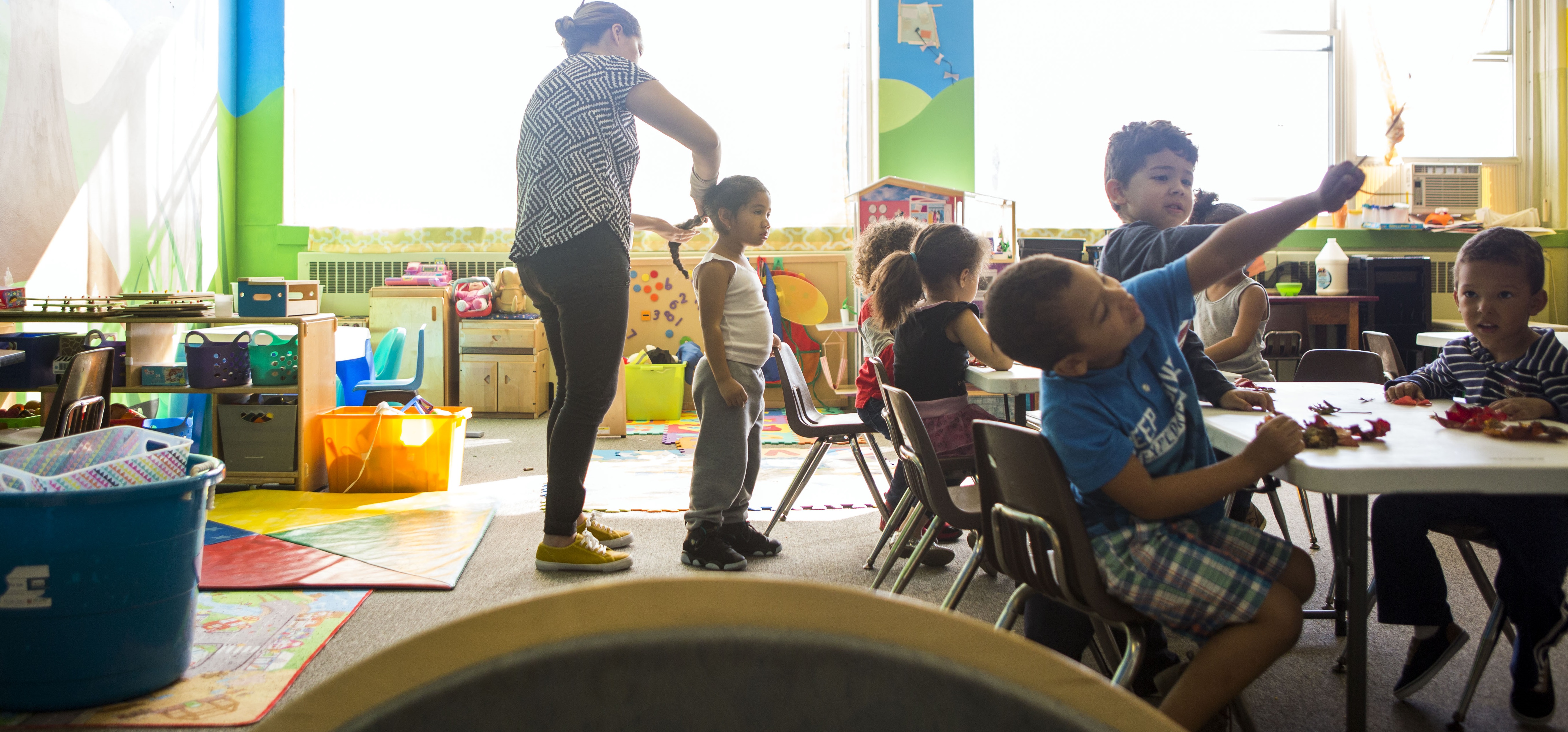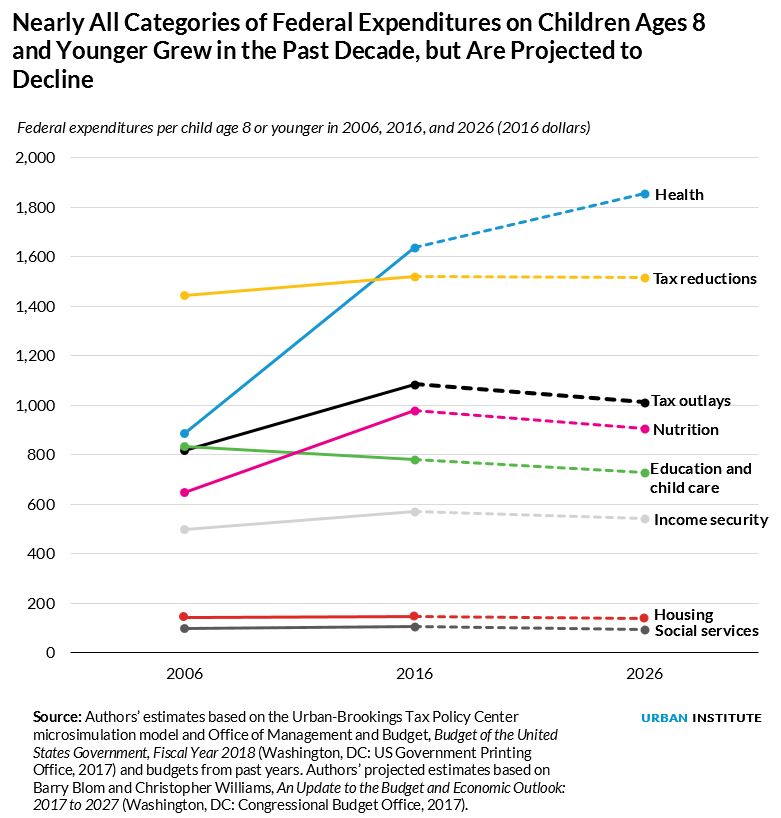
Federal spending on young children ages 8 and younger helps ensure kids are fed, housed, and healthy and can reach their full potential. But federal spending on children ages 8 and younger (and for all children) is slated to decline over the next decade, under current law.
A child’s early years are a critical time for brain development and can influence the ability to learn, self-regulate, and manage stress. Children who aren’t proficient at reading by the end of third grade (approximately age 8) are four times more likely to drop out of high school than their reading-proficient peers. Lower federal spending on children, especially in these early years, represents reduced investment in future generations, as federal programs help children develop and meet their full potential and become tomorrow’s productive workforce and taxpayers.
Under current law, real federal spending per child age 8 or younger is expected to decline between 2016 and 2026 in every category except health. From 2006 to 2016, education and child care was the only category where federal expenditures per child age 8 or younger declined.
Federal funding per young child stayed flat in housing and social services, experienced modest growth in income security and tax expenditures, grew more quickly in nutrition, and more than doubled in health because of increased enrollment in public insurance coupled with economy-wide growth in the real cost of health care. Spending per child is projected to be even lower in 2026 than in 2006 in housing, social services, and education and child care.

This context is worth keeping in mind as Congress considers a federal budget that is increasingly under pressure. The Tax Cuts and Jobs Act would further shrink America’s investment in young children in at least two ways:
- Few tax-lowering changes in the bill target at families with children, and none target families with very young children. Low-income families with children would also have higher taxes in 2027.
- The bill would also increase budgetary pressures on programs that help children and discretionary spending on programs for adults.
The evidence suggests that our nation’s investment in young children does not match the importance of the early years in childhood development, and we should ensure that children aren’t left out of the conversation as Congress charts a course for the future.
Tune in and subscribe today.
The Urban Institute podcast, Evidence in Action, inspires changemakers to lead with evidence and act with equity. Cohosted by Urban President Sarah Rosen Wartell and Executive Vice President Kimberlyn Leary, every episode features in-depth discussions with experts and leaders on topics ranging from how to advance equity, to designing innovative solutions that achieve community impact, to what it means to practice evidence-based leadership.